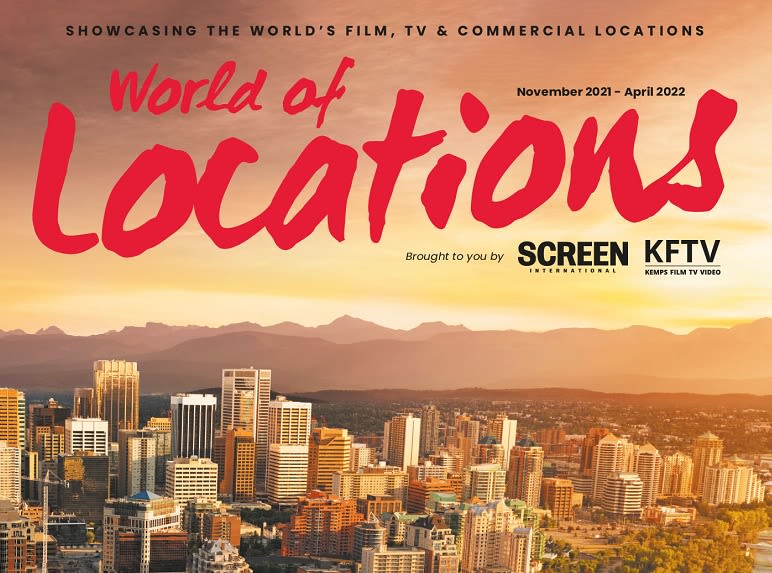Spotlight on Germany
Germany has upped its incentives, mainly aimed at high-end TV productions, to reinforce its bid to become a chameleon-like, top-end international production hub
By Geoffrey Macnab 9 Nov 2021

Germany’s financial incentives consist of both federal and regional funds, and although not quite as generous as in some other European hubs, such as the UK and Hungary, international producers are drawn by the highly developed infrastructure and world-class workforce. Germany also boasts locations that can stand in for practically anywhere on the globe.
The beginning of 2021 saw Chilean director Pablo Larrain’s Princess Diana drama Spencer, starring Kristen Stewart, film in locations in Hesse, Berlin and North Rhine-Westphalia, doubling for England, at the height of lockdown restrictions in both countries. The film is a co-production between Larrain’s Fabula outfit and the UK’s Paul Webster of Shoebox Films, with Germany’s Komplizen Film. The film then moved to the UK.
Leos Carax’s Cannes opener Annette shot for 10 days in summer 2020 in North Rhine-Westphalia, using a museum in Bonn to stand in for a Los Angeles concert hall, the LVM insurance company’s buildings in Münster for the LAPD’s headquarters as well as the former Nazi Ordensburg Vogelsang estate as a US high-security prison.
“We also took over a terminal at Düsseldorf airport to shoot scenes set in places like Japan, China, Africa and India, with extras we found locally who came from all of these countries,” explains line producer Tatiana Bouchain.
In the 18 months since the pandemic began, German studios have hosted large-scale international shoots including Warner Bros’ The Matrix Resurrections, Sony Pictures Entertainment’s Uncharted, Lionsgate’s John Wick: Chapter 4, Studiocanal’s Liam Neeson thriller Retribution and Amblin Partners’ horror film The Last Voyage Of The Demeter. In addition, Studio Babelsberg is now home to Dark Bay, one of Europe’s largest virtual production studios, where Netflix mystery series 1899 is being shot.
Germany’s VFX studios have also been busy on big US projects. Productions include Marvel’s Eternals (ScanlineVFX) and Focus Features’ Blue Bayou (Trixter) as well as Warner Bros’ Reminisence (Rise) and Paramount/Amazon series Without Remorse (Pixomondo).
Financial incentives
The German Federal Film Fund (DFFF I) is open to small and medium-sized productions with total production costs of up to $23m (€20m). It offers a rebate of up to 20% of German production costs to a cap of $4.7m (€4m) for features, documentaries and animation films spending at least 25% of their total budget in the country.
Production service providers can apply to DFFF II for funding of up to 25% of approved costs for projects with total production costs of $23m (€20m) or more. The minimum German spend here is $9.3m (€8m) for feature films and $2.3m (€2m) for animated films and films with virtually animated components. The maximum amount paid out to a single film was $29m (€25m) to Warner Bros’ The Matrix 4 in 2019. The DFFF I and II funds are open only to projects that can prove they will have a theatrical release in Germany; TV movies or series are not eligible.
The German Motion Picture Fund (GMPF), on the other hand, is aimed at series with total production costs of at least $35,000 (€30,000) per minute for fiction and $10,400 (€9,000) per minute for documentary series. Its funding cap was recently increased from $4.7m (€4m) to $11.6m (€10m) per film or season to attract more big-budget productions to the territory, and benefit from the streamers’ hunger for content. Producers need a Germany-based partner on board to apply for funding, and projects must pass a cultural test.
Infrastructure and crews
International projects do not necessarily have to bring in all their heads of department, as Netflix’s Emmy-winning series The Queen’s Gambit discovered when it shot in Germany in 2019. Berlin-based production designer Uli Hanisch and his 100-strong team, who worked together on Babylon Berlin, built locations all around Berlin that stood in for the US, Paris, Mexico and Moscow.
Local crews are proficient in English with plenty of international productions to their name, while the big studio hubs are Studio Babelsberg (Potsdam), Bavaria Studios (Munich) and MMC Studios (Cologne). The leading production services companies include First Frame in Munich and Shotz, TIN Agency and Film Base in Berlin.
This feature is a condensed version of the Germany profile in our latest issue of World of Locations, which you can read below...
Latest news & features
Featured profiles
Promote your services with KFTV
Choose from three profile types - Basic, Silver and Gold
Create ProfileWe offer a range of display advertising opportunities.
Learn More



